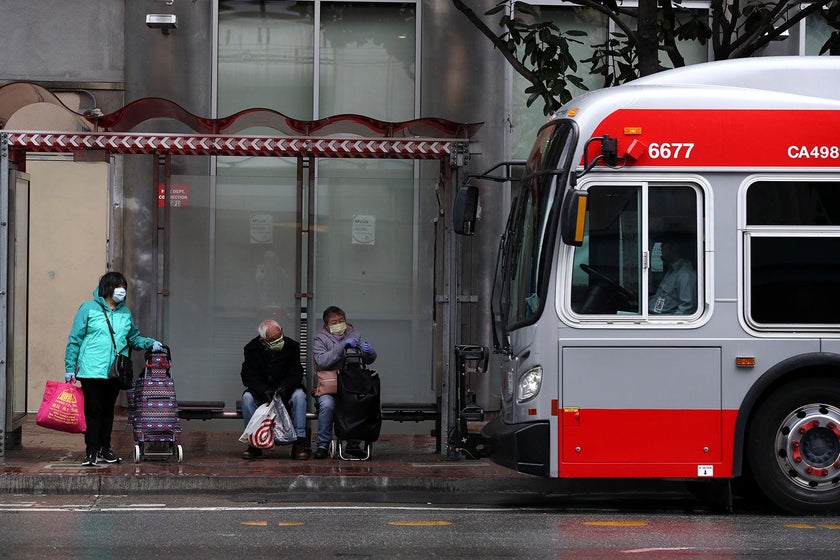| |
 Posted Jun 11, 2021, 4:53 PM
Posted Jun 11, 2021, 4:53 PM
|
 |
Registered User
|
|
Join Date: Aug 2002
Location: Toronto
Posts: 52,200
|
|
|
Opinion: Transit Needs to Be Better, Not Cheaper
The Problem With Free Transit
June 01, 2021
By Henry Grabar
Read More: https://slate.com/business/2021/06/f...reat-idea.html
Quote:
.....
Proponents say universal free transit will help the poor, end the carceral cycle of fare evasion, avoid the stigma and inefficiency of means-testing, and boost ridership. Unfortunately, on that last point getting more people more places without cars—the prospects for free transit do not look so good. Los Angeles is in some ways the perfect large city to experiment. In the American Prospect, Claire Wang offers an excellent rundown of the case for free transit in the Southland. Seventy percent of county riders are low-income, so even a universal subsidy would be fairly well-targeted. After the pandemic’s onset, Metro fare revenue dropped from 17 percent to just 4 percent of its operating budget. “We have a moral obligation to research and implement a fareless transit system,” Phillip Washington, L.A. Metro’s recently departed CEO, told the Prospect. “In the long term, transit should just be like library services or fire department services.”
- The primary difference between a bus and a firetruck in Los Angeles, however, is not that one is $1.75 and one is prepaid by taxes. It’s that a firetruck comes when you need it. According to the AllTransit Gap Finder, a comparative tool that ranks cities based on service in densely populated neighborhoods, more than 60 percent of L.A. County households are underserved by transit relative to their density (rising to 70 percent in the city of Los Angeles). The comparative figure is 18 percent in Chicago and 24 percent in D.C. How free is free transit if you have to spend an hour a day waiting for the bus? — “I’m not sure free fares are the best investment from the point of view of liberating large numbers of low-income people only those who already live where transit is already useful,” said Jarrett Walker, a transit planner based in Portland, Oregon. “I’ve heard people describe the free fare movement as being a movement for free, terrible service, and that’s how the trade-off ends up working if you expect this to happen inside the budget of an impoverished American transit agency.” — On the one hand, it would be disingenuous to pretend Los Angeles straphangers must choose between free service and frequent service: The agency’s budget is almost $8 billion, and it spends many times its bus budget on capital projects and highways, funds that could easily be reapportioned to bulk up its transit offerings.
- Low-income riders do use transit more once fare discounts are offered, observed Steven Higashide, the research director at the think tank TransitCenter and author of Better Buses, Better Cities. He pointed to an MIT study that showed that low-income residents in Boston with discounted CharlieCards took about 30 percent more trips, especially for health care visits. (There are many more studies of free transit in Europe, but the continent’s excellent service and high cost of car ownership make them dubious points of comparison.) — But those same riders also overwhelmingly said reliability was a bigger concern than affordability. And that’s just among people who ride now. “For millions more people the barrier might be the bus doesn’t even go to their doctor’s office, or they can’t rely on it getting there when the schedule promises,” Higashide said. “People won’t have true freedom of mobility unless there is twice, three times, four times as much service as what exists today.” — The competition between free fares and better service is more acute in cities like San Francisco, where transit is not considered the mode of last resort and fare revenues make up a greater share of the bottom line. There, even with MUNI service reeling from pandemic-era cuts, city supervisors moved to abolish fares over the summer using federal relief funds.
- In cities with more wealthy riders, though, free transit isn’t just a regressive redistribution of tax money it’s also not clear how many high-income riders would get on board. In Boston, for example, of MBTA pass holders given free access to the city’s bus network before COVID, 40 percent never rode a single bus. If free buses can’t capture subway riders, why would they lure drivers? What’s true in Boston is true nationally: Riders say they want better service, not cheaper service. And that may underestimate the preference, because so many low-income people have been pushed out of close-in, well-served neighborhoods where transit works. They don’t think of themselves as straphangers anymore; free transit means little when the bus is a mile from your house. — Well before the pandemic cratered their ridership, American transit agencies were in crisis. Los Angeles had fewer riders in 2016 than in 2006 despite a growing population and billions spent on new transit projects. According to a 2018 study, that decline had an obvious culprit: Angelenos were switching to cars. In other words, transit in Los Angeles is losing riders to a better option, not a cheaper one. Then again, if riding is free, at least Angelenos will be getting what they pay for.
.....
|

__________________
ASDFGHJK
|
|
|



